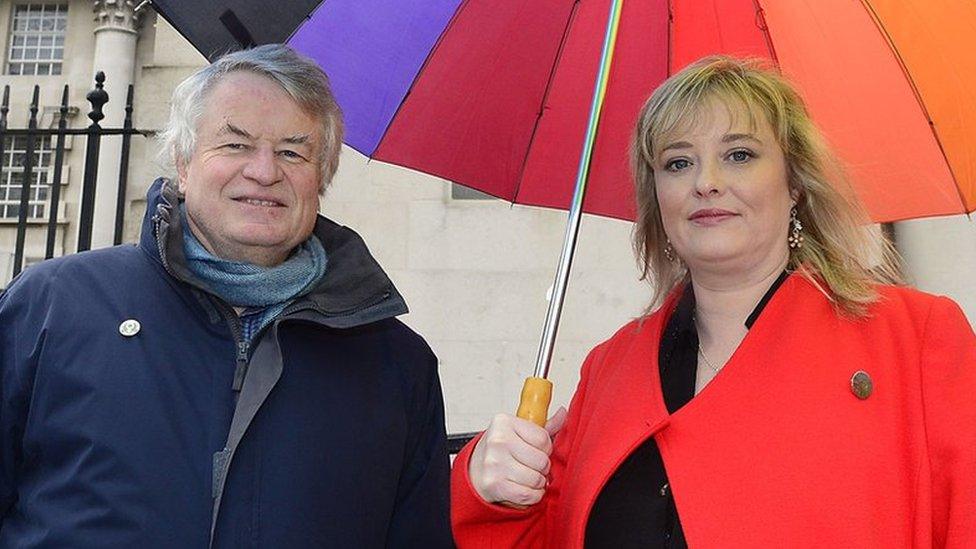MĆ”irĆa Cahill settles election address case with the NIO
- Published

Ms Cahill (right), took the case with the assistance of the NI Human Rights Commission
A former SDLP councillor has settled a case against the government over a previous law that required NI election candidates to make their address public.
MĆ”irĆa Cahill withdrew from the 2019 council election as her address was to be published in nomination papers.
She did not want to make her address public due to a restraining order protecting her from an individual.
She later took a case to the High Court in a bid to change the law.
Backed by the NI Human Rights Commission, Ms Cahill sought the changes arguing it breached the human rights of people who were victims of domestic violence and abuse, or those with concerns for their safety.
In July 2020 the Northern Ireland Office (NIO), which holds responsibility for election law in NI, meaning candidates can now indicate if they do not want their address to be disclosed.
The Human Rights Commission has now settled the case it helped Ms Cahill take, without admission of liability from the NIO.
'Jeopardise their safety'
Speaking to “óĻó“«Ć½ News NI, Ms Cahill said she was glad a "barrier had been removed".
"First and foremost for people who may consider running for electoral politics but whose safety would have been put at risk," she said.
"No-one else will be in the same situation I was in."
But she said she believed the government could have moved quicker to change the law.
"Legislation does take time and I appreciate they were dealing with a pandemic, but this case came before Covid-19 struck and time, money and effort could have been spared much sooner with a quicker resolution."
Ms Cahill added she had not given thought to standing as a candidate in future elections, but said she was "happy with an outcome which has shaped the law for others".
Les Allamby, the chief commissioner of the Human Rights Commission, said the case had "paved the way to protect the human rights" of those seeking to stand for election in future, who could have faced similar challenges.
"It was unacceptable to expect anyone to jeopardise their safety to run for public office," he added.
"The commission welcomes the decision to change the law, settle this case and pay compensation, given that MaĆrĆĆ” lost the opportunity to stand as a candidate in local elections."
An NIO spokesperson said: "Following the May 2019 elections, the government ensured the law was changed as quickly as possible to ensure that candidates may now stand at local elections without their address being published."
- Published25 November 2019
- Published5 April 2019